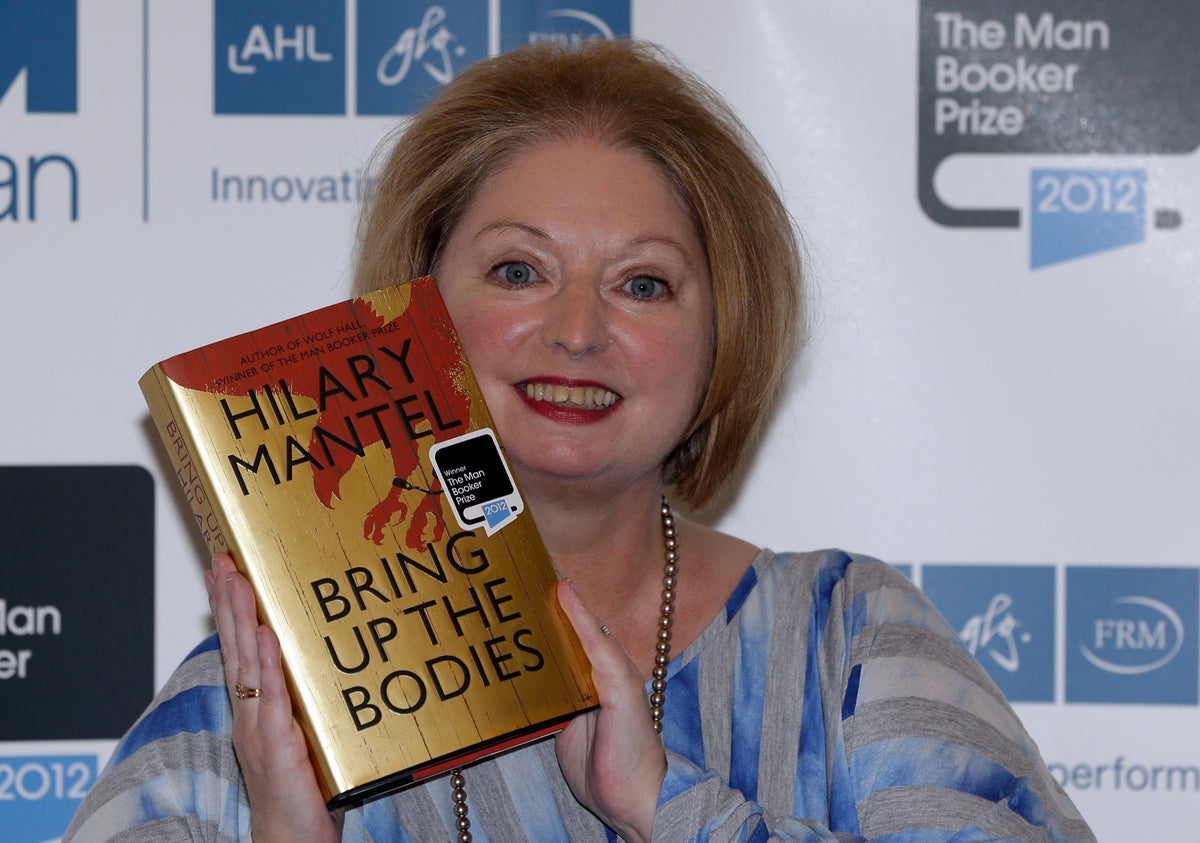
Hilary Mantel, the author of the prize-winningWolf Hall trilogy, has died aged 70.
The British writer died “suddenly yet peacefully, surrounded by close family and friends” yesterday (22 September), her publisher HarperCollins said in a statement.
“Hilary Mantel was one of the greatest English novelists of this century and her beloved works are considered modern classics. She will be greatly missed,” the statement added.
Nicola Sturgeon and Caitlin Moran are among the public figures who have led tributes to Mantel.
She is best known for her epic Wolf Hall trilogy, which has been translated into 41 languages and sold more than five million copies worldwide.
The books in the trilogy are fictional accounts of the life of Thomas Cromwell and his rise to power in Henry VIII’s court. The first book, Wolf Hall, and its sequel Bring Up the Bodies, won the Booker Prize in 2009 and 2012, respectively.
Mantel was the first woman and fourth person to receive the award twice, following in the footsteps of JM Coetzee, Peter Carey and JG Farrell. The third instalment of the trilogy, The Mirror & the Light, was released in 2020 and was longlisted for the Booker Prize that year.
Mantel published a new photography book, The Wolf Hall Picture Book, just this month. It was created with the actor Ben Miles and his photographer brother, George.
In an interview with the Financial Times published earlier this month, Mantel was asked whether she believes in an afterlife, to which she replied: “Yes. I can’t imagine how it might work. However, the universe is not limited by what I can imagine.”
Born in Derbyshire, Mantel studied at the London School of Economics before living and working in Botswana and Saudi Arabia. It was while living in Saudi Arabia that she published her first novel, Every Day is Mother’s Day, in 1985. She later said that leaving Jeddah felt like “the happiest day of [her] life”.
Mantel went on to write a further 12 novels, including Eight Months on Ghazzah Street (1988), which drew on her life in Saudi Arabia and explored the clashing of cultures.
Subsequent novels that drew critical acclaim were 1992’s A Place of Greater Safety, 1996’s An Experiment in Love, and 2005’s Beyond Black.

She was awarded a CBE in the 2006 Birthday Honours and made a Dame in 2014.
Mantel was known for her outspoken views on the royal family. She once made headlines for suggesting the monarchy could be facing “the endgame”, and may not “outlast William”.
In a lecture she gave in 2013, titled “Royal Bodies”, Mantel caused controversy when she described the then-Duchess of Cambridge as a “plastic princess”. These comments were met with backlash, including from then-prime minister David Cameron.
Mantel defended her comments, however, and explained that she was talking about “the way we maltreat royal persons, making them one superhuman, and yet less than human”.
Mantel made headlines again when, in a 2014 interview published in The Guardian, she admitted she had fantasised about the murder of Margaret Thatcher in 1983, and fictionalised the event in a short story called “The Assassination of Margaret Thatcher: 6 August 1983”.
Allies of Thatcher called for a police investigation, to which Mantel responded: “Bringing in the police for an investigation was beyond anything I could have planned or hoped for, because it immediately exposes them to ridicule.”
Ben Hamilton, who was Mantel’s agent throughout her career, said it had been “the greatest privilege” to work with the writer: “Her wit, stylistic daring, creative ambition and phenomenal historical insight mark her out as one of the greatest novelists of our time,” he said.
“Emails from Hilary were sprinkled with bon mots and jokes as she observed the world with relish and pounced on the lazy or absurd and nailed cruelty and prejudice.
“There was always a slight aura of otherworldliness about her, as she saw and felt things us ordinary mortals missed, but when she perceived the need for confrontation she would fearlessly go into battle.”
Mantel suffered chronic illness throughout her adult life, with a severe form of endometriosis leaving her unable to have children.
“Sometimes people try to persuade me that it’s made me a better writer in some way, or that it has meant that I could keep the world at bay,” she told The Times in 2012. “But I’d rather cope with the world than cope with pain, and the uncertainty that goes with it.”
Mantel married geologist Gerald McEwen in 1973. They divorced in 1981 but remarried in 1982. She is survived by him.







